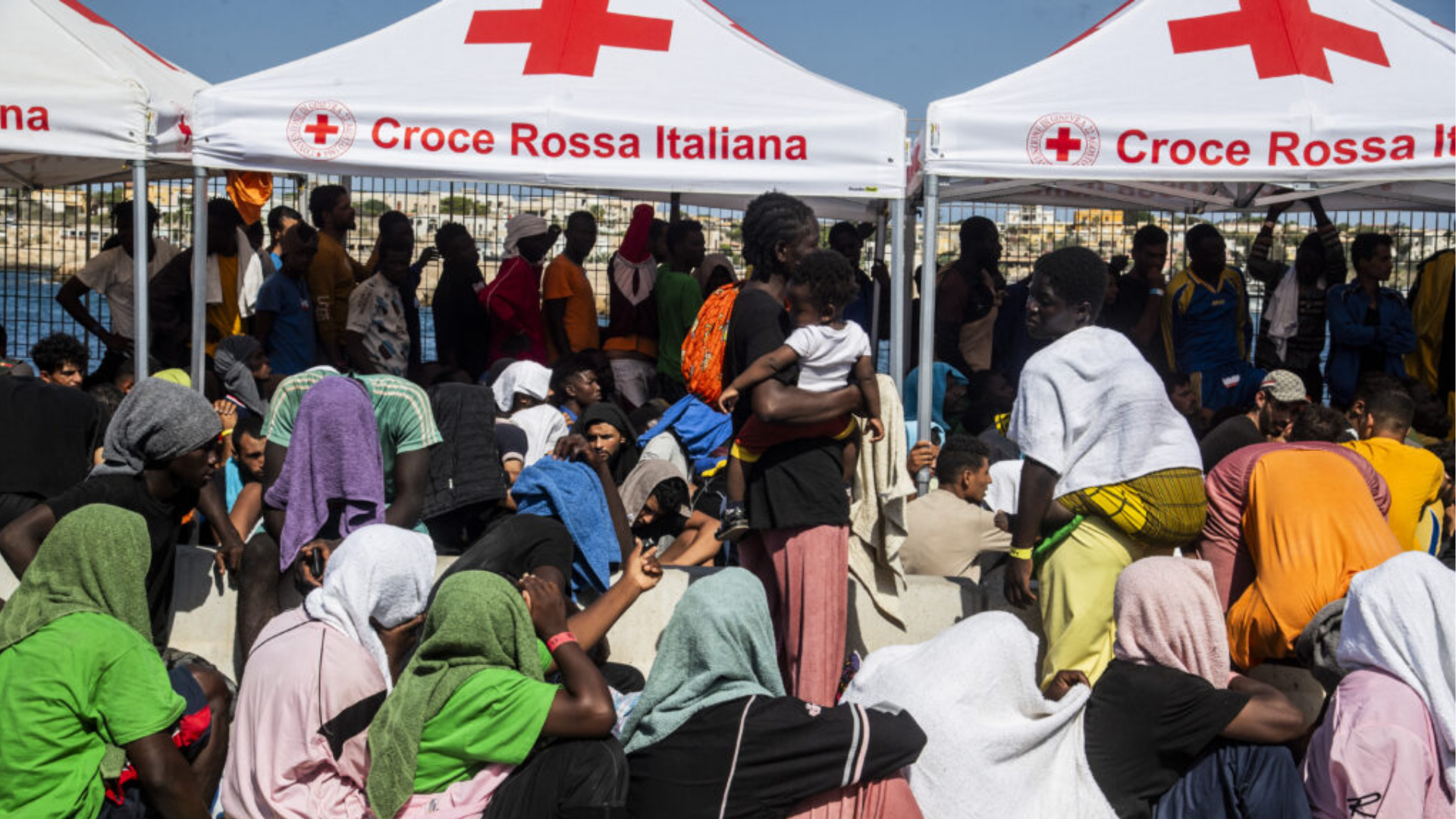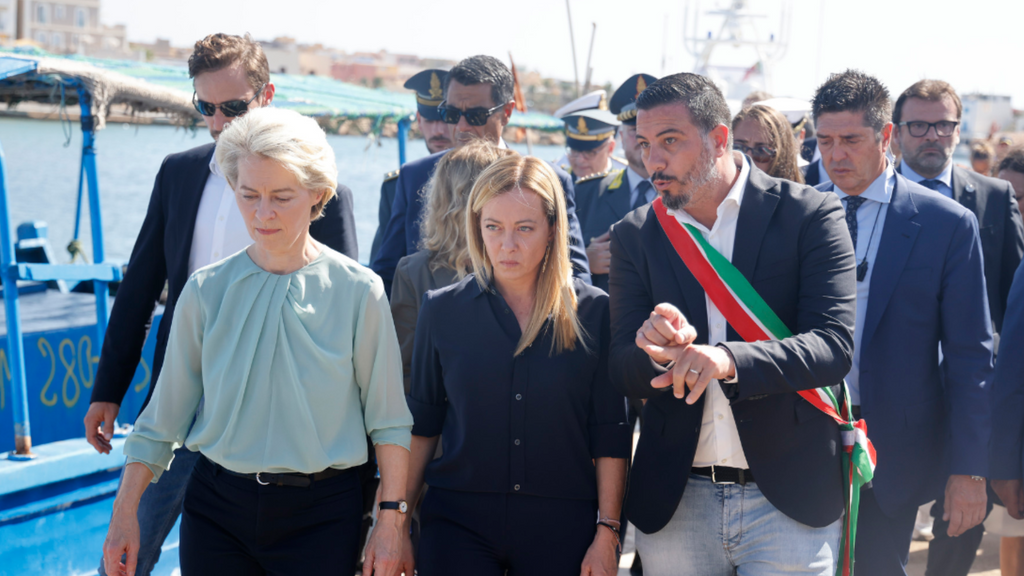European Commission President Ursula von der Leyen visited a migrant reception centre at Lampedusa in Sicily on Sunday after accepting an invitation from Italian Prime Minister Giorgia Meloni.
The invitation comes following a heightened migration crisis on the Italian island in the past week. According to the Italian Ministry of the Interior, 10,000 migrants reached Lampedusa between Monday and Wednesday with Lampedusa Mayor Filippo Mannino declaring a state of emergency on Wednesday evening.
A further over 8,000 migrants arrived between Friday and Sunday.

Migrants at the Italian Red Cross in Lampedusa. Credit: Belga
"Irregular migration is a European challenge, and it needs a European answer," von der Leyen said at the same press conference. Despite protests by some Lampedusa residents on Saturday, von der Leyen thanked locals for doing their "utmost to support the men, women and children who have made it to this island."
She also promised a "coordinated response by the Italian and European authorities" that will "decide who comes to the European Union and under what circumstances, and not the smugglers and traffickers." The President then put forward a "10-point action plan."
10-point action plan
The President's action plan provides reinforced support to Italy in the processing of arrivals, transferring migrants out of Lampedusa, coordinating with countries of origin to prevent further departures and increasing anti-smuggling strategies as well as more robust border surveillance.
However, some accuse von der Leyen's plan of presenting no new solutions. One Italian journalist, David Carretta, posted on social media: "Ursula von [der] Leyen presents yet another 10-point action plan in Lampedusa. There is not a single point that is new compared to previous action plans."
Related News
- Lampedusa: Thousands of migrants transferred to mainland after state of emergency
- 'Unprecedented': Tunisia refuses entry to MEPs months after EU migration deal
- Investigation opened into the EU-Tunisia migration deal amid Lampedusa chaos
The Commission President's visit to Lampedusa comes just two months after the EU and Tunisia signed a deal to tackle undocumented migration that pledged €105 million from the EU.
Von der Leyen and Meloni travelled to Tunisia in July to sign the agreement whose aim was to reduce undocumented migration and increase legal pathways for asylum seekers and migrants.
On Friday, however, European Ombudsman Emily O'Reilly opened an enquiry on the migration deal's respect for human rights. NGOs and MEPs have also criticised the pact for its collaboration with Tunisian President Kaïs Saïed, who has been behind numerous power grabs, with many expressing concerns at the country's democratic backsliding.
In an official statement in February, Saïed claimed that immigration from sub-Saharan Africa was part of a "criminal plan to change the composition of the demographic landscape," a well-known far-right conspiracy theory.

